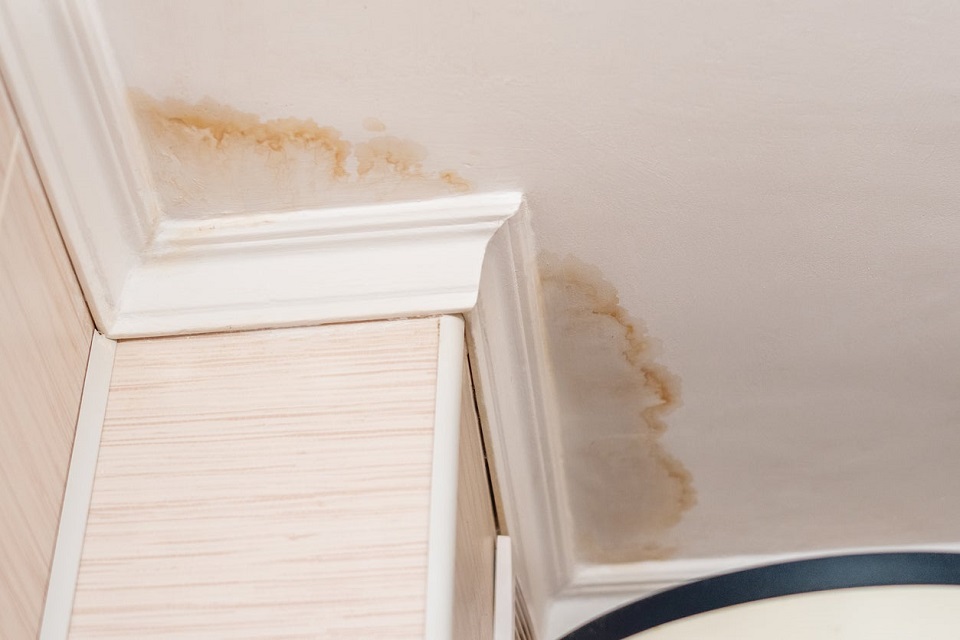The sound of dripping water inside your home may signal a leak in the wall. Undetected leaks can damage drywall, cause mold and mildew problems, and raise water bills.
Look for clues such as a musty smell, peeling paint or wallpaper, and water stains on walls and ceilings. A change in the texture of a wall or floor can also indicate moisture.
Discoloration Or Staining
A slow leak behind drywall can do severe damage. Fortunately, many clues can alert you to the problem.
Discoloration or staining on walls is one sign that a hidden leak is causing problems. Wet spots, sagging sheetrock, and molding indicate a hidden leak. Mold is another warning sign, and a musty smell indicating mildew growth.
Power Tip: When you notice that wallpaper is buckling or paint is bubbling, the underlying wall is probably saturated with water. This condition can lead to rot, mold, and more serious structural damage.
If you hear a dripping sound that doesn’t stop, shut off all the faucets and appliances in your home. A leaky pipe may cause the dripping, or it could be another problem that requires professional help. Turn off the water at your home’s main valve if the dripping continues. This will stop water flow to the area and prevent further damage.
Wet Spots
Water leaking behind walls can lead to untreated mold, structural damage, and personal health problems. Knowing how to recognize the signs and symptoms of water running in wall Jacksonville FL can save you time and money and avoid costly repairs in the future.
When a pipe leaks, it typically makes a dripping sound that can easily be heard. But, the same issue can cause other signs that could be more obvious.
For example, if your home’s paint surfaces begin to crack or peel, it could indicate hidden water damage in the wall, in which case you’d likely need water damage restoration in Bellmore, NY. Another clue is a musty smell. Water that leaks inside walls never has the chance to dry out, so sheetrock, and wood framing absorb the moisture and develop a musty smell. Moisture meters and infrared cameras can also help homeowners locate the source of hidden water damage. These tools work by reading the surface temperature and detecting cooler temperatures where moisture is present.
Unusual Sounds
A hidden leak can lead to many problems, from bubbling paint and buckling wallpaper to mold and rotting flooring. It can also cause significant spikes in your water bill. Look for standing puddles of water or wet carpeting to locate a leak in your wall. You may also notice a musty smell. Mold grows best in moist environments; a hidden leak can lead to a humid atmosphere.
A dripping sound in the walls at night can be unnerving, especially if there are no visible signs of a leak. It is usual for water to drip when you use a faucet or shower, but it should stop after your usage stops.
If you hear a dripping sound in your wall that doesn’t match your water fixture use, try turning off the water supply and using a moisture meter to locate the source. Moisture meters read the temperature of materials, and areas with higher humidity levels are closer to the source of the leak.
High Water Bills
Often, homeowners notice a water leak once they receive a shockingly high water bill. This is a sure sign of a leak somewhere in your house.
If you see a sudden increase in your water bill, check your water meter to ensure no one uses more water than usual. If the red dial is moving even when all of your faucets are turned off, there’s a good chance you leak.
It’s essential to be aware of the signs of a hidden leak since water damage repairs can be expensive. The most obvious warning sign is a musty odor, but discoloration and wet spots are also essential to look for. You should also pay attention to the sound of dripping water, especially if your home is older and has iron pipes instead of newer plastic PVC ones. Newer piping will amplify the sound of dripping water, making it easier to hear when there’s a leak in your wall.








No Comments